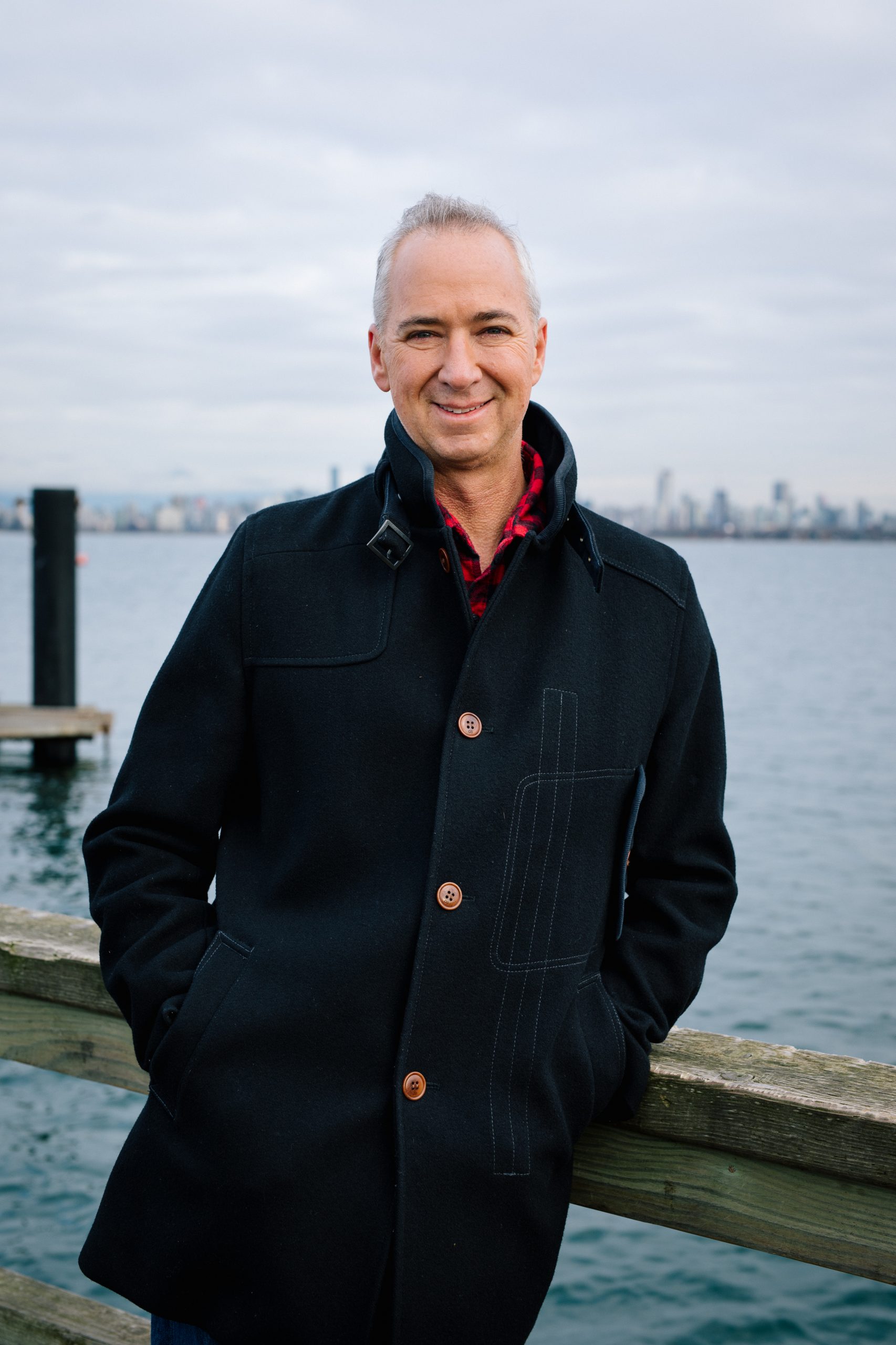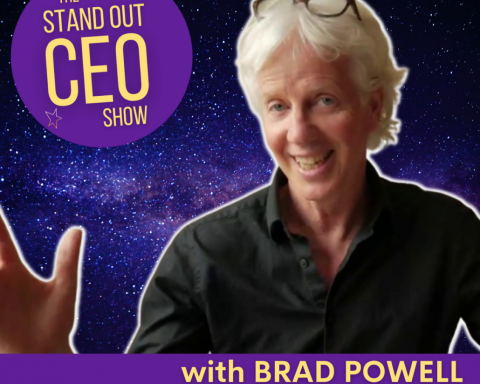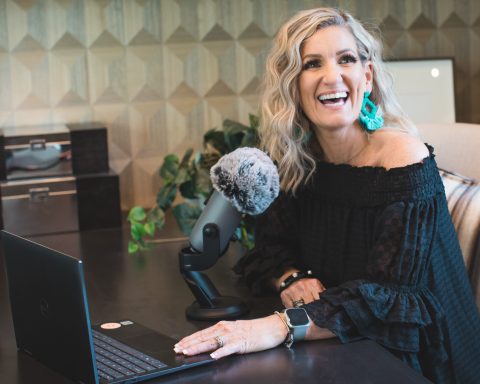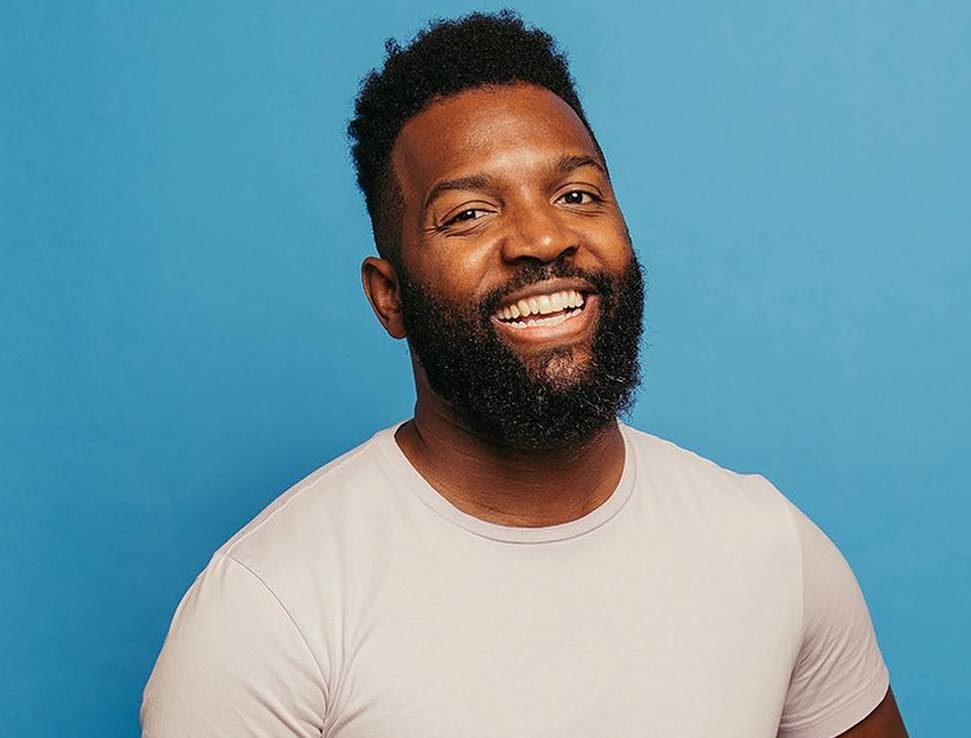Behind every great CEO is a tireless COO, or “second in command.” And now, there is a podcast devoted solely to the Chief Operating Officers of the business world!
Cameron Herold, celebrated author, speaker, and serial entrepreneur, is the host of the highly rated podcast Second in Command: The Chief Behind the Chief, and as the name suggests, it’s geared toward the COOs of the business world.
Cameron started his career as an entrepreneur at a young age, as he tells it:
“When most kids were really in grade one and grade two, I was already an entrepreneur. I was groomed to be one at a very young age. My parents ran their own business, and both sets of grandparents did the same. My dad and mom really encouraged all three of us kids to be very entrepreneurial.
“I was seven years old when I took on my first entrepreneurial venture. I’d collect coat hangers in the neighborhood and then sell them to the dry cleaners for two-and-a-half cents each.
“I probably had 15 different business ventures by the time I was 18 years old. When I was 21, I was running a real operational painting business with 12 full-time employees.”
Cameron’s business was part of the College Pro Painters franchise, which went on to become one of the world’s largest residential house-painting companies in the world.
As Cameron explains:
“During my training to be a franchisee, they taught me all the systems—how to sell, market, paint houses, diagnose, and effective time- and production-management. It was a very, very rigorous training program. I was so nervous about failing that I took the entire 300-page operations manual and did every single thing it said to do. I just followed it to the letter, because I was so scared of screwing up.
“By the time I was 28 years old, I left College Pro Painters and co-founded a franchising group for an auto-body chain. From there, I was president of a private currency company we built and sold. Then, Brian Scudamore, the founder of 1-800-Got-Junk?®, who was also my best friend and the best man at my wedding, called. Three months later, I joined Brian as his second in command. When I actually came into the company, there were only 14 employees. When I left six-and-a-half years later, we had 3100 employees system-wide.”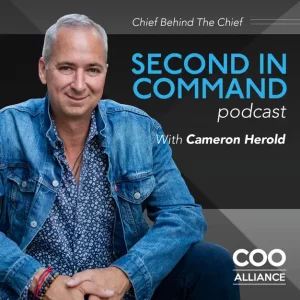
Cameron’s involvement with 1-800-Got-Junk?® and all the media attention the company garnered laid the foundation for what was to come. And while listening to the interviews Brian held along the way, Cameron realized it was like hearing a very different version of the same story. This realization ultimately led to the format of his podcast.
“On the Second in Command podcast, we never interview the CEO. We only interview the COOs of some really, really great brands. We get the details, the more operational views of how the businesses were really grown,” he shares.
“The CEO is often the vision, the culture, and the strategy of the company, while the COO is operational. They are the ‘How are we really going to make it happen?’ people. It’s very similar to building a home. If I’m the homeowner, I’m the visionary for what I want my home to look like. But the contractor is the one who does the blueprints and the plans and hires the people to actually make my dream home. Without me, they wouldn’t be building, and without the contractor, I’d never get anything built. So it’s a real yin-and-yang partnership, the CEO/ COO relationship.”
Even though the podcast is geared toward the operations part of business, and most of the guests are with larger companies, it doesn’t leave out other types of business owners. Small business owners can find value in the podcast, as well.
“As a business owner, you really get a perspective on how to build that partnership between CEO and COO, so you can benefit from having a mentor partner—an MVP—to help make their dreams happen. We share where to find a second in command, how to onboard that person better, and how to build a strong relationship with him or her. We also cover how to divide and conquer, by splitting up roles and responsibilities.
“The COO tends to be really, really good at the stuff the CEO sucks at. The CEO tends to really love working on the areas of business that drains the CEO’s energy. So it’s very much about dividing, conquering, and then running with it. It’s a really unique role.
“We get into a lot of those details. And then, when you’re listening to the CEOs explain how they’re building teams and collaboration and working with the craziness of the entrepreneurs, you’ll glean so many insights. A lot of our listeners are CEOs or COOs, of course, but we also have a lot of senior executives from organizations who are trying to understand the dynamic that happens at that C-suite level.”
For Cameron, the podcast has been personally as well as professionally rewarding. He explains:
“It’s giving me richer insights into the roles I’ve worked behind the scenes, coaching CEOs, COOs, and CFOs all over the world. For the last 15 years, I’ve coached companies in 26 countries. And when I get to interview them, I get unique insights that I never would have been exposed to otherwise.
“I’ll give you an example—on episode 114, my guest is Matt MacGinnis, who is the CFO for a company called ‘Rippling.’ Matt is a very strong COO, and he crafted what he called ‘the operations manual for Matt.’ It’s a guide for working with him. It includes keys, what makes him tick, what pisses him off, and what gets him excited. It explains how to communicate with him, how to solve problems with him, and how to come to him when you’re struggling. It’s literally how he operates as a CFO. It’s a unique and powerful tool. Since airing that episode, I have listeners who have followed suit and written operations manuals for themselves. That’s a tool that I never would have been exposed to, had I not interviewed Matt.”
Cameron keeps the episodes very conversational, so listeners don’t feel the need for an MBA to listen or figure it all out. His overall aim? To demystify business and the operations of a company.
Cameron laughs, “You know, I think a lot of the general rules of business, we could learn from grandma, if we were paying attention. Because grandmas give us a lot of advice that we miss.”
Take it from Cameron’s grandma, and listen to the Second in Command podcast.
July 2022 Issue


